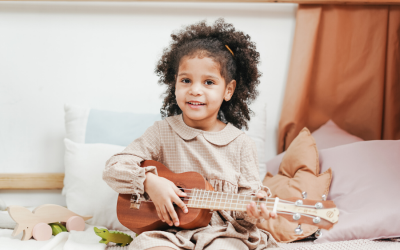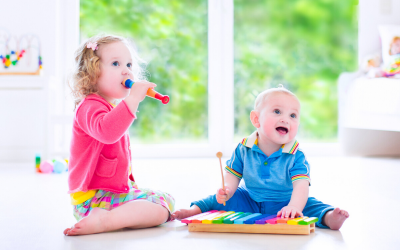facebooktwitterpinterestinstagramyoutubeDid you know that, whether you have had any formal training in music or not, as a parent you can incorporate music lessons at home with very little trouble? Well, you can. Most parents irrespective of musical knowledge are...

The Number One Reason You Should NOT Buy Musical Instruments
The Number One Reason You Should NOT Buy Musical Instruments
The first thing parents do when they sign their kids up for music lessons is to purchase a new musical instrument.
While this may seem like the most logical thing to do, I’m here to say that no it isn’t.
Yes, I can hear the screams out there saying that I’m crazy, but really, hear me out with an open mind and let me tell you why I think the first thing you should be doing is NOT buying a musical instrument.
Before I start, let me also tell you that the Number One reasons is actually many huge reasons combined together.
So let’s start
Expensive
Ok. so this one is a no brainer, but it is not the only reason.
For instance if you buy a piano it can be very expensive, but whereas if your child is only learning to play the recorder, and you buy a recorder, it is not very expensive and therefore, expense alone is not the only reason, but it is a huge one.
So what are the other reasons?
Guilt Ridden
Yes, this is a big one. When you purchase a new instrument, you almost always will take your child on a guilt trip.
Not only have I been taken on a guilt trip by my parents on many occasions as a child, but I have done the same to my kids inadvertently, even when I have consciously not wanted to do so.
Also when we purchase a new instrument and put down all that money we tend to want our kids to stick with it, even if they don’t want to and are not very good at it.
Yes, I can hear you say that unless we stick to something when it is hard, how are we going to learn?
All worthy arguments, but when we allow the money that we have spent on the instrument to cloud our judgement, things can get out of hand, don’t you think?
There also can be instances where your child hates it, but is just too guilt ridden to admit that he/she doesn’t want to learn to play the instrument and thus, it can be very bad again.
Intimidating
When kids know the amount you’ve spent and the sacrifices you’ve made to purchase them the instrument, it can be a great motivator for them to learn the instrument and stick with it, but it can also be very intimidating.
And it can go back to what I stated above, ‘guilt’, which can be a bad thing.
On the other hand if you see that they are good at it and love to play and then scrimp, scrape and invest in the musical instrument, it won’t intimidate or guilt them into learning but, will motivate them greatly, and teach them, while also showing them the value of sacrifice and hard work.
So what should you do then? Should you have them learn an instrument without actually investing in one?
How will they practice?
How will they get better at it?
Not to worry. I have a variety of solutions and alternatives that will work.
Try-Out
This is something that is essential when the investment is a big one. For instance purchasing a piano can be very expensive and if your child has never learned to play piano in the past, you don’t even know for sure if he/she will like it.
So why not try it out first? Try an online course like mine, Read Music Notes and Play the Piano in 5 Days for FREE.
But how to learn without a piano? Read this post, and implement at least one of these strategies. Desperate To Learn To Play The Piano, But No Piano/Keyboard At Home?
The strategies stated in the above post will work whether your child wants to learn piano, or guitar, or drums or anything else.
Rent Rather Than Own
Why not rent instruments like guitars, clarinets, trombones and others, instead of buying them.
Yes, in the long run renting can be a lot more expensive than owning but in the short term it will be a huge cost saver.
Also your child can get a feel of the instrument and learn it and know for sure if he/she wants to continue before you decide to invest.
One thing to be cautious about is to make sure that the rental agreement is month to month and you can cancel at anytime without penalties or additional hidden charges.
Also when deciding to buy after renting, if you are going to buy from the same store or school, check if you can get some credit for the payments you made when renting.
Buy Second Hand
This is another good option because, for one thing you will be saving quite a bit, but also because, if your child loses interest midway, you can sell the instrument for nearly the same price you purchased it for, and not take a huge loss.
Now, that you have read the post, do you agree that the Number One thing you shouldn’t do, is to purchase a musical instrument when your child starts music lessons?
Want more ideas on how you can fill your home with musical instruments without spending a fortune? Then you will love my post 9 ‘No Fail’ Ways To Fill Your Homeschool With Musical Instruments.

Karen Cadera
Founder/Creator
Mom, Teacher, Minimalist, Zero Waste Enthusiast, Multi Pod.
My daughter loved the games, but there were also worksheets and videos. The weekly lesson plans were complete, and I never questioned what I should be doing next.
Articles That Maybe Of Interest To You
7 Super Simple Ways To Incorporate Music Lessons In All You Do At Home
3 ‘Ridiculously Simple’ Ways To Incorporate Music Education In To The Unschooling Lifestyle
facebooktwitterpinterestinstagramyoutubeMost unschooling parents tend to think of piano lessons or any specific instrument lessons as very structured, and therefore may not always be a good fit for their kids. However, I’m here to say that, it is not always true....
3 ‘Ridiculously’ Simple Ways To Teach Music Appreciation In The Homeschool
facebooktwitterpinterestinstagramyoutubeIf you have been reading my blog for a long time then you know that I’m a huge advocate for parents who have never learned any music, to teach their kids music in the homeschool. And as you know, I’m always looking for ways to...









